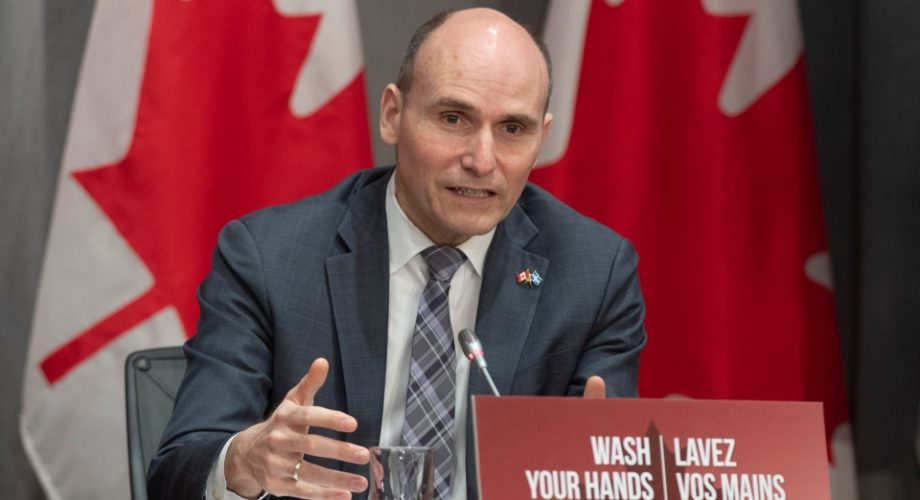
President of the Treasury Board Jean-Yves Duclos responds to a question during a news conference in Ottawa, Wednesday April 8, 2020.
Police in Canada are investigating three suspicious deaths and the disappearance of two teenagers which took place within days of each other along a remote Canadian highway.
Some Canadians have received double the expected monthly payments from the new Canada Emergency Response Benefit, but federal officials say the multi-billion dollar aid program is working properly.
The Canada Emergency Response Benefit, or CERB, offers $2,000 per month for up to four months for every Canadian who lost income due to COVID-19. Applications opened up this week, and in the first two days alone, the government received more than 1.7 million applications.
But some Canadians who’ve already received the money have reported irregularities, including direct deposits of $4,000 — double the monthly amount.
According to Treasury Board President Jean-Yves Duclos, that’s because those recipients are being paid retroactively for the four-week period dating back to March 15, the first day the benefit can be applied, as well as the upcoming four-week period, beginning April 11.
Duclos said Canadians should be aware of the double payment and budget accordingly.
“Everyone needs to manage his or her budget on the understanding that it’s $2,000 per month regardless of when that $2,000 is actually deposited in his or her bank account,” he said at a press conference on Wednesday.
Since March 15, more than 4.26 million people have applied for financial assistance through employment insurance and CERB. So far, 3.8 million CERB claims have been processed.
In total, the benefit is expected to cost the federal government $24 billion, according to Finance Minister Bill Morneau.
No matter how the money is dispersed, officials say tracking measures are in place to make sure that each applicant only receives the maximum $8,000 they are entitled to for the 16-week period.
“Our primary goal has always been getting money into the pockets of Canadians who need it during this difficult time, and doing so in a timely and accurate way. As a result, Service Canada and the CRA have been working together to continually review the CERB payments for accuracy,” said the office of the Minister Employment, Workforce Development and Disability Inclusion Carla Qualtrough.
Applications for the Canada Emergency Response Benefit (CERB) opened Monday for Canadians born in the first three months of the year, a limitation applied in hopes of not overloading the system. On Tuesday, Canadians born from April to June were allowed to apply, those born from July to September were permitted on Wednesday. Applications will be open Thursday for anyone born from October to December.
Those who sign up for direct deposit are expected to receive the money faster, within three to five days, while printed cheques take approximately 10 days.
Anyone who became eligible for employment insurance regular or sickness benefits on March 15 or later is automatically processed through CERB. Those who were eligible to receive more than $500 per week through EI will not be eligible for that higher amount with CERB, but their EI entitlement will not be impacted after they stop receiving CERB.
Some provinces have offered additional funding to low-income families, renters or others who find themselves struggling to make ends meet during the pandemic.
On Wednesday, Prime Minister Justin Trudeau announced newly relaxed rules for the wage subsidy program, which offers businesses a subsidy on 75 per cent of employees’ salaries.
Now, companies that saw a 15 per cent decline in March compared to revenues in January and February 2020 can apply. Previously, companies were only eligible if they saw a year-over-year decline of 30 per cent.
More than two million Canadians lost their jobs in the second half of March due to the pandemic, which has forced businesses across the country to shutter.
As of Wednesday afternoon, more than 19,000 people in Canada have been infected with the virus and 427 have died.